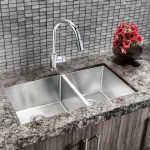Adding stone flooring to your kitchen can really transform the look and feel of the room. Natural stone is a timeless material that adds a classic, elegant touch to any space. It also provides a durable flooring that can last for years. However, when it comes to stone kitchen flooring, there are both advantages and disadvantages to consider.
Advantages of Stone Kitchen Flooring
- Durability: Natural stone is highly durable and can last for decades with proper maintenance.
- Ease of Cleaning: Stone is easy to clean and maintain, making it an ideal flooring option for busy families.
- Aesthetic Appeal: Stone has a timeless and classic look that adds beauty and elegance to any space.
- Heat Resistance: Natural stone is also a great option for kitchens as it is heat resistant and will not be damaged by hot pans or spilled liquids.
Disadvantages of Stone Kitchen Flooring
- Cost: Natural stone can be quite expensive, making it an impractical choice for some homeowners.
- Installation: Installing stone kitchen flooring requires special tools and skills and can be a time-consuming process.
- Maintenance: While stone is easy to clean, it does require regular maintenance to keep it looking its best.
- Slippery: Natural stone can also be slippery, so it is important to use a non-slip rug or mat to prevent slips and falls.
Stone kitchen flooring can be a great way to add a timeless and elegant look to your kitchen. However, it is important to consider both the advantages and disadvantages of the material before making your decision. By weighing the pros and cons, you can ensure you make the best decision for your home.















Related Posts








